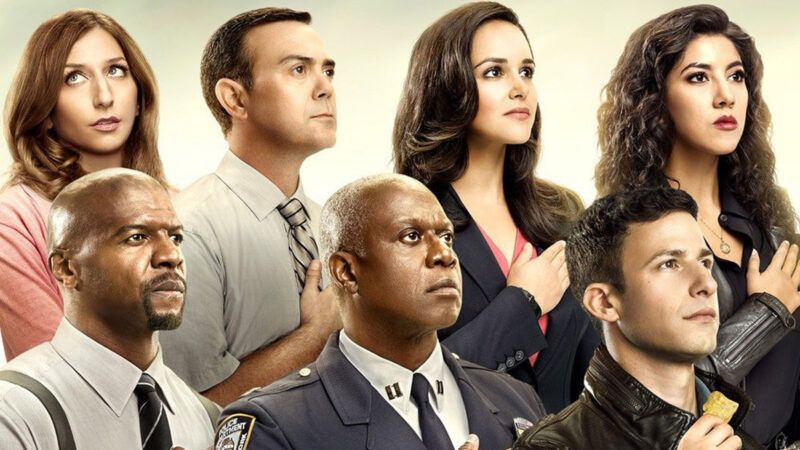Brooklyn Nine-Nine
For the most part, the series' characters revere due process rights rather than seeing them as something to be trampled in pursuit of justice.

What's a cop sitcom to do when the decidedly unfunny killing of George Floyd by a police officer upends the plan for its eighth and final season? Brooklyn Nine-Nine didn't address Floyd in depth, but it didn't shy away from acknowledging police brutality and police union corruption nor from offering a subtle critique of politicians more interested in virtue signaling than in solving problems.
Criminal justice reform wasn't the sole focus of a season that revisits all the sitcom's traditions. But in the season opener, Detective Jake Peralta, often depicted as an investigative genius, assures a victim of police brutality that he's "one of the good ones" before coming to realize that, actually, the system often doesn't work even when good people are involved. Later in the season, Peralta makes a wrongful arrest but then admits wrongdoing (even though the police union tells him not to) and accepts a suspension.
For the most part, the series' characters revere due process rights rather than seeing them as something to be trampled in pursuit of justice, a trend all too common in serious police procedurals. In the end, though, Brooklyn Nine-Nine's crime-fighting heroes steal from and mislead the police union president and his mother in order to convince the commissioner to implement police reform. While good cops hoodwinking bad cops in service of police reform is a great comedy set piece, it's still true that noble ends shouldn't be used to justify crooked means—especially for police officers, with their special powers and privileges.


Show Comments (14)